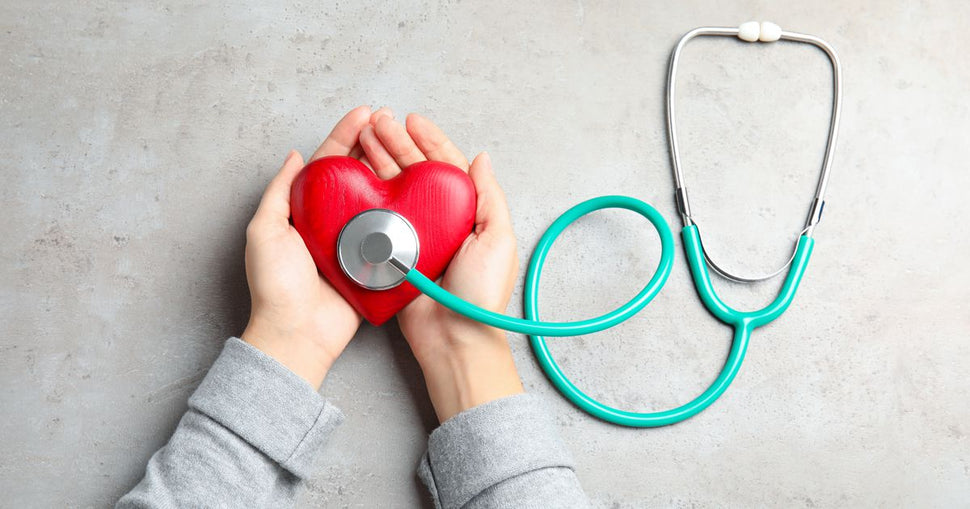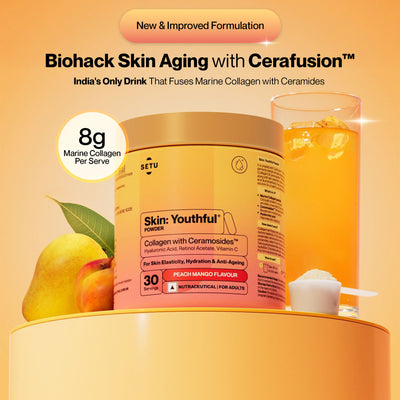Signs you're having a heart attack
12 Aug 2021
A heart attack occurs when its muscles don’t receive sufficient oxygen because the flow of blood into the area has either been stymied or cut off entirely.
Imagine a pipe getting clogged with dirt, stopping the water from your tank reaching your kitchen tap. In the body, these pipes are the arteries surrounding your heart, and the dirt is fat or cholesterol build-up that leads to the formation of plaque and blood clots. These blood clots narrow the arteries, allowing less blood to flow through them over time, eventually leading to a heart attack.
Heart attack symptoms, risks and recovery
When you experience the symptoms of a heart attack, immediately seek medical attention. But how do you know if you’re having a heart attack?
Here are some of the most common symptoms:
- You experience discomfort in your chest, mostly in the centre. The discomfort might feel like weight, pressure, fullness or pain, and can last for a few minutes or longer
- You can also experience this tightness and pain in other parts of your body, like your arms, the back, jaw, neck or stomach.
- These symptoms are often accompanied by abdominal discomfort, heartburn or indigestion
- Shortness of breath, dizziness, vomiting, and light-headedness are other common symptoms of a heart attack.
The severity and presence of these symptoms vary widely, with some people experiencing little to no symptoms at all.
What happens during a heart attack?
During a heart attack, your heart stops functioning properly due to a lack of oxygen. Your heart rhythm goes awry and at times it can even stop beating. The part of the muscle that isn’t receiving sufficient oxygen gets damaged and in severe cases can die and become scar tissue.
A heart attack can also be major or minor. A major attack occurs when the flow of blood is completely cut off as a result of a blockage. A minor attack occurs when the heart muscle is receiving lesser oxygen than it needs, but still receives some.
Prior to a heart attack, one can experience signs of heart blockage like slow or irregular heartbeats and breathlessness. You may even feel faint and have trouble climbing stairs or doing any kind of activity.
What are the risk factors for heart attack?
The key risk factors of heart disease are high blood pressure, high cholesterol and smoking. (1) Age and a family history of heart disease also increase your susceptibility to it.
- High blood pressure: If the pressure of blood in your arteries and blood vessels is too high, you’ll be diagnosed with HBP. Certain lifestyle habits or medical issues contribute to this condition. It is often called the ‘silent killer’ because HBP doesn’t have too many visible symptoms, and if left untreated, can affect your heart, brain and other major organs in your body.
- Unhealthy cholesterol levels: Cholesterol is a waxy substance that is found in certain foods and is also made by the liver. When we consume more cholesterol than we need, the extra cholesterol gets deposited in the arteries, obstructing blood flow.
- Smoking: Smokers are at a higher risk of developing heart disease than non-smokers. Cigarettes contain nicotine, which is known to raise blood pressure, while carbon monoxide from cigarette smoke reduces the blood’s oxygen carrying capacity. This causes damage to blood vessels, thereby increasing your susceptibility to heart conditions.
- Obesity and being overweight: People with excess body fat are more prone to having high blood pressure and high cholesterol levels, both of which increase the risk of developing heart disease.
How does one recover after a heart attack?
You can enjoy a happy and healthy life even after suffering a heart attack. However, you need to get the right medical treatment, while also making the lifestyle changes necessary for improving your heart health. To recover from a heart attack, here are some things you will have to do:
- Physical activity: After a sufficient recovery period, some amount of physical activity, like walks or light yoga, is good for the heart and necessary for managing your weight and cholesterol levels. Stay away from particularly strenuous activity, however.
- Lifestyle changes: This includes quitting tobacco for good, consuming a healthier diet, practicing meditation or deep breathing to reduce stress, indulging in healthy sleep habits and being more aware of your body’s overall health.
- Cardiac rehabilitation: Cardiac rehab (2) is a supervised program by doctors that includes physical activity, education on healthy living habits, and counselling.
How do you prevent a heart attack?
Staying active: Find a way to always stay active. Go for a run, cycle often, and choose to walk to nearby locations instead of taking your car. Indulge in a fitness activity you like, like Zumba or a game of football. Try to put in at least 30 minutes of focussed physical activity every day.
Eating healthy: Don’t just jump on to the diet fad of the day or week. Make sure to watch what you eat and check that what is on your plate is actually good for your body. Ditch the unhealthy items and replace them with healthy ones.
De-stressing: We can’t stress this enough. Stress is one of the leading causes of many health problems, both physical and mental. Reduce stressful situations in your life by de-cluttering it like you do your desk. Limit the time you spend on social media, and spend the extra minutes practicing a fun activity or listening to music from a relaxing playlist.
Up your nutrition: Omega-3 fatty acids are good for cardiovascular health (3). These fatty acids reduce inflammation around the heart, thereby helping prevent heart disease. They also improve joint mobility, boost brain function and improve skin health. Get your daily dose of Omega-3 with Setu Triple Strength Fish Oil supplements!
FAQs
1) What dietary changes can I made to reduce my risk of heart disease?
Make heart-healthy foods a part of your diet. Avoid red meats, deep-fried and high-sodium or processed foods, and excess amounts of sugar. Also be vigilant about your portion size so that you don’t end up overeating or undereating.
2) What treatments will I need if I suffer a heart attack?
The best treatment will be suggested by your doctor, which might include routine tests, medication, lifestyle changes, and possibly surgery.
3) Are there any concerns after recovering from a heart attack?
The major concern after recovering from a heart attack is having another one. Ensure that you stick to your medication and doctor’s advice to stay safe and healthy.
Skin: Renew - Glutathione - Orange Flavour
- ₹1,994
- ₹1,994
-
₹2,600 - ( 23% OFF)
Categories
- Choosing a selection results in a full page refresh.
- Press the space key then arrow keys to make a selection.
this is the sidecart











